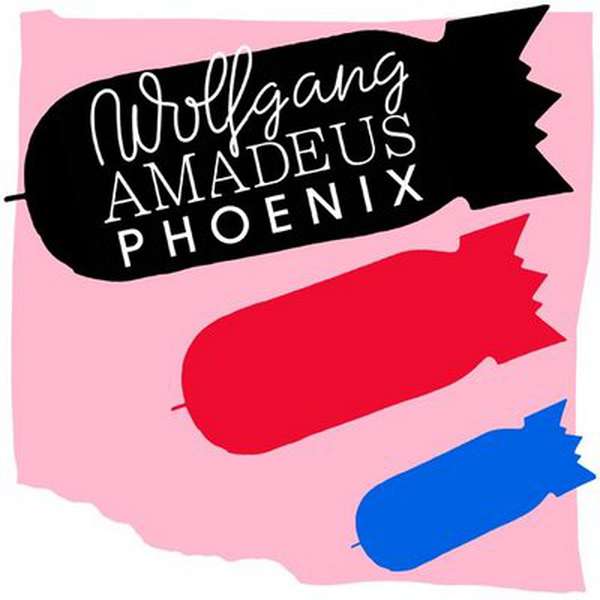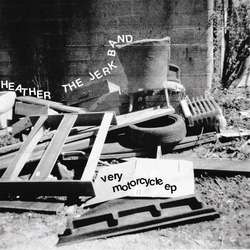Phoenix has always been successful at lifting spirits and making people dance. Based out of Versailles, Phoenix has been going at it for almost a decade now, and their fourth full-length, Wolfgang Amadeus Phoenix, came at the perfect time for Summer. And no, it's not a Mozart cover album. Apparently, the somewhat egotistical sounding title was a product of the members' readings on tour. Thankfully, their egos can rest unchallenged with this album. Laden with themes and references to the 19th century, the album is nothing short of energizing. There's no doubt that it's a testament to their trademark upbeat pop sound full of catchy, driving melodies with a pleasant dash of synth.
Perhaps I'll get my taste for bad humor out of the way and just say that much like the mythical phoenix, Wolfgang Amadeus Phoenix rises out of the ashes of It's Never Been Like That, born again as a much further rock oriented Phoenix. In retrospect, Phoenix has slowly whittled away their disco and funk-tinged sound in favor of purer rock over synth (compare any song off this album to "If I Ever Feel Better" or "On Fire" on United and you'll get an idea of how different Phoenix is now). Constantly honed and refined, their sound has changed a lot from their disco-pop roots.
On this album, Phoenix makes their feelings about classical music apparent with their use of dynamics, an element that's often missing from a lot of good music today. Remember the use of crescendos and descrescendos in high school band? "Lasso", one of their faster songs, demonstrates this as it quiets down and picks up with careful attention to tone. Phoenix really makes you appreciate the individual sections of choruses, verses, and refrains because they're so recognizably talented in this aspect. All glowing compliments aside, the only little qualm I have is that the album feels a little short running at a total of thirty-seven minutes, including "Love Like a Sunset." I feel that Phoenix could have shown us a few more songs to tide us over until the next album.
I'll continue with a step by step feel for the A-side of the album. Wolfgang Amadeus Phoenix kicks off with "Lisztomania," an appropriate first track that starts off with a galloping piano and bursts after the chorus with guitar and bass. The energy is carried over to "1901" with a crunchy electro tone on the bass and a lighter, airy toned guitar. Then there is a reprieve as the album winds down with "Fences", a slower, dance tempo song sprinkled with layers of bells and chime sounds. Finally, consider "Love Like a Sunset" (a song about the tunnel between Versailles and Paris) to be an epic instrumental interlude that builds up, crashes, and fades out as vocalist Thomas Mars sings,
Day comes/ Visible horizon/ Right where it starts it ends/ Oh and then we start the end.
Following the album's theme of classical music, think of Mars' words as a call for the second act. I won't say too much more about the rest of the album, but believe me when I say that the second half is just as good, if not better. Each song is definitely single-worthy and Wolfgang Amadeus Phoenix is a good-feeling pop thrill from start to finish.



